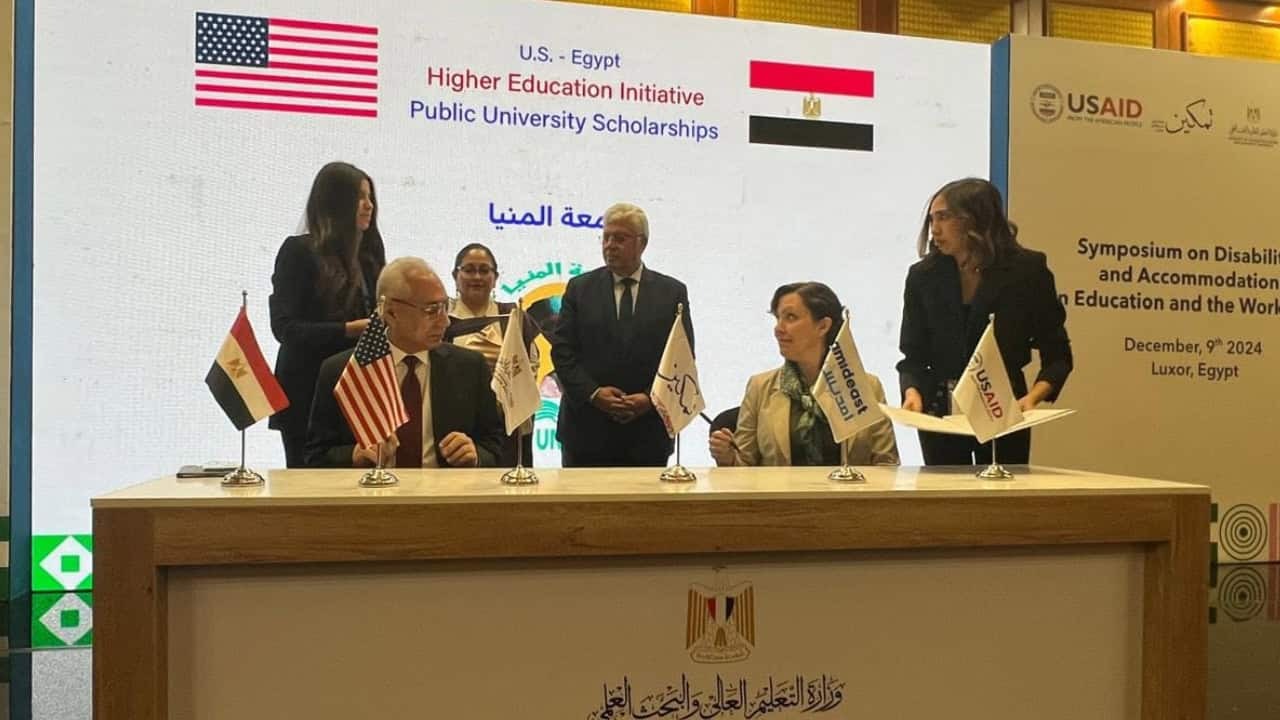
In a step reflecting the growing commitment to supporting students of determination in higher education, strategic cooperation protocols were signed today between seven Egyptian universities, the U.S. Agency for International Development (USAID), and AMIDEAST.
This initiative is part of the third phase of an ambitious project aimed at establishing specialized centers to serve students of determination in public universities.
Dr. Essam Farhat, President of Minia University, signed the protocol for his university, as part of agreements that included Benha, Matrouh, Menoufia, Port Said, Aswan, and Kafr El-Sheikh universities.
The signing ceremony was attended by prominent officials, led by Dr. Ayman Ashour, Minister of Higher Education and Scientific Research, and Ms. Marisoll Perez from USAID.
Dr. Farhat explained that the protocol outlines a comprehensive roadmap for developing the university’s Center for People of Determination, including specialized training programs for staff, the preparation of integrated work strategies, and the provision of necessary funding for various activities. He emphasized that this step reflects the university’s holistic vision in supporting its students of determination.
Dr. Ayman Ashour praised the importance of this international collaboration, emphasizing that it aligns with the directives of the political leadership and the “Tamkeen” initiative launched by the Ministry.
He revealed ambitious expansion plans that include establishing colleges and institutes specialized in the care of people of determination and developing curricula to meet their needs.
Ms. Marisoll Perez added that these centers represent a unique model of Egyptian-American cooperation, developed according to global best practices while respecting Egyptian cultural specificity. She stressed that the primary goal is to transform universities into more inclusive environments that recognize diverse talents and abilities.
Dr. Sherine Yehia highlighted the project’s journey across its three phases, explaining that the first phase included five universities, followed by 15 universities in the second phase, and the current third phase, encompassing seven universities. This brings the total number of centers to 27 across Egypt.
It is worth noting that the protocol signing followed a specialized workshop on “Assistive Technology and Inclusion of People of Determination,” underscoring the growing focus on employing modern technologies to support this vital group of students.



